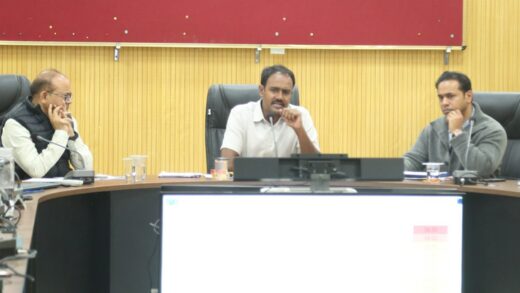Since the announcement on 3 October that the UK had reached a deal with Mauritius for the transfer of sovereignty of the Chagos Archipelago there has been much political and media comment. Some of which has been well-informed, some less so. In the latter category, former prime minister Boris Johnson called the decision “sheer political correctness”, and Reform leader Nigel Farage said it was a “surrender” and “strategic disaster”. It has also been suggested that the handing-over of the Chagos Archipelago could precipitate a domino effect whereby some of the remaining 13 British Overseas Territories (BOTs) could also be given up by the UK. This article discusses the decision of the UK to cede sovereignty to Mauritius and the likely implications, if any, for the other BOTs.
The Chagos Archipelago is situated in the middle of the Indian Ocean and consists of seven atolls and 60 islands. It is formally known as the British Indian Ocean Territory (BIOT) and in various guises has been under UK control since 1814. The origins of the decision to cede sovereignty was in 1965 when prior to independence for Mauritius the Chagos Archipelago was removed from the territory, creating the BIOT. Independence was conditional on the detachment taking place. Then from 1968-1973, the Indigenous Chagossian population was removed. These decisions were made to ensure that the subsequently constructed United States-UK military base on Diego Garcia was as secure as possible.
In recent years, the pressure has built against continued UK sovereignty of the Archipelago, which in turn was beginning to compromise the UK’s legitimacy and authority regarding the BIOT, with growing risks of housing a military base on a contested jurisdiction. Indeed, the UK Conservative Government, which began the negotiations with Mauritius in 2022 recognised this more difficult legal and diplomatic situation. Several rulings have undermined the UK’s position.
First, there was the ruling by the Permanent Court of Arbitration in 2015 that the marine protected area established by the UK around the BIOT was not compatible with obligations under the Convention to give proper regard to the rights of Mauritius and consult with it. Second, in 2019 the International Court of Justice made an advisory ruling, arguing that “the process of decolonisation was not lawfully completed”, and that the UK’s contribution was a “wrongful act”. This ruling was later endorsed by the UN General Assembly. Third, and finally, in 2021 the International Tribunal for the Law of the Sea in a judgement related to a case involving Mauritius and the Maldives stated, “Mauritius’ sovereignty over the Chagos Archipelago can be inferred from the ICJ’s determinations”.
Since the UK’s decision to cede sovereignty there has been discussion about the basis and weight of the rulings, including that the Chagos Archipelago is far away from Mauritius and was only attached to Mauritius in 1903, and that the ICJ ruling was only advisory and should be ignored. This overlooks the fact the weight of international opinion was moving away from the UK, the manner in which BIOT was created was highly problematic, and the original reason for creating the uninhabited territory (to provide additional security to the military base) was being compromised.
So, there are good reasons why the UK government (under the Conservatives and now Labour) felt it was time for an agreement to be reached with Mauritius. Of course, there were several factors to consider and those critical of the deal have said that it will empower China, and Mauritius cannot be trusted to abide by the Treaty. However, there are strong arguments in favour. The ceding of sovereignty will (as noted previously) place the military base on a sounder legal footing, enhance relations with India (which backed the deal) and other partners in the Indo-Pacific region, and provide a much-needed shot-in-the-arm for decolonisation, international law, and the role of diplomacy. Even if one disagrees with some of the details of the deal, there are good reasons why one should have been struck.
Of course, caught in between are the Chagossians; those who were removed and subsequent generations. Their treatment over the last 50 years has unquestionably been poor and they have battled for recognition and a say in their future. Many Chagossians believe that the deal struck last week still fails to take on board their interests. Yet, the agreement does give some Chagossians the best opportunity in half a century to return to their homeland if they wish, and there is more government support for the Chagossians in the UK. Ultimately, the deal to cede control between two sovereign states was the necessary prelude to Chagossians getting that right to return. If sovereignty had remained contested any such move would have been more uncertain.
The third strand to the debate is whether ceding the sovereignty of the Chagos Archipelago is the thin end of the wedge and will lead to increased pressure on the UK’s sovereignty of some other British Overseas Territories. It might seem like an obvious argument to make, but it oversimplifies the complex and nuanced relationships that the BOTs have with both the UK and other countries, which might have an interest in them. The majority of the BOTs, including Bermuda, the five in the Caribbean, Pitcairn, and St Helena are not contested. It is true there are issues in the bilateral relationship between them and the UK that cause disagreements, and the balance of decision-making power is an ongoing consideration, but they are far away from what is happening with the British Indian Ocean Territory.
Even for the Falkland Islands, Gibraltar, and the Sovereign Base Areas of Akrotiri and Dhekelia in Cyprus there is little chance of the Chagos agreement threatening their present status as British Overseas Territories. For the Falkland Islands, Argentina’s rhetoric is often noisy and it can make things difficult for the islands, but there is also some pragmatism as seen by a new agreement to improve ties between the two. For Gibraltar, the main concern is not Spain demanding control, but rather if the well-used land border can be kept open (Gibraltar was not part of the UK’s withdrawal agreement from the EU). Lastly the Sovereign Base Areas, which host a Royal Air Force (RAF) base, are supported by a deal with Cyprus and an arrangement whereby EU law applies to the non-military parts of the territory, which includes 11,000 Cypriots.
The decision of the UK government to cede control of the Chagos Archipelago to Mauritius is significant and not without risks. Also, there is work to do to secure the interests of the Chagossians, and for some, their return. But much of the commentary has been hyperbolic and unhelpful. These issues are complex, and they should be given due care.
Further Reading on E-International Relations
Source link
#Evaluating #Repercussions #Chagos #Islands #Sovereignty #Deal


















